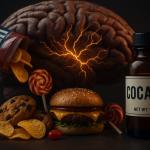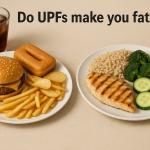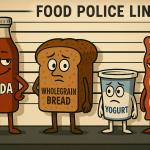In the opening pages of The Wealth of Nations, Adam Smith invites us into a pin factory. A single laborer, attempting to fashion pins alone, might produce only a handful in a day.
ultra-processed foods
Rant: Aren't you just plain sick of people telling you what to eat? Enough already!
Join Cameron English and Dr. Chuck Dinerstein on Episode 153 of the Science Dispatch podcast as they discuss:
Join Cameron English and Dr. Chuck Dinerstein on Episode 140 of the Science Dispatch podcast as they discuss a wildly unethical "thought experiment."
While federal agencies have yet to issue a definition of ultra-processed foods (UPFs), California has moved ahead.
In the last few years, the treatment of obesity has undergone a seismic shift. For decades, bariatric surgery stood as the most effective and durable intervention we had for severe obesity.
A more controversial hypothesis has emerged: are these “Frankenfoods” addictive in ways similar to drugs?
Food Addiction Through Time
Ultra-processed food, or UPF, has become the wellness world’s favorite villain. Celebrity doctors and health influencers have built whole careers out of blaming it for our ills.
Ambiguous definitions and growing public concern fuel the debates over the health risks of ultra-processed foods (UPFs).












